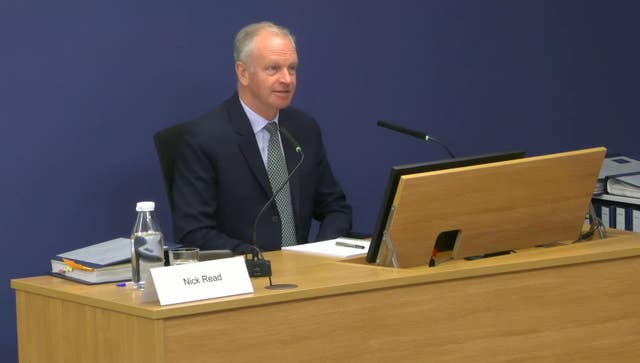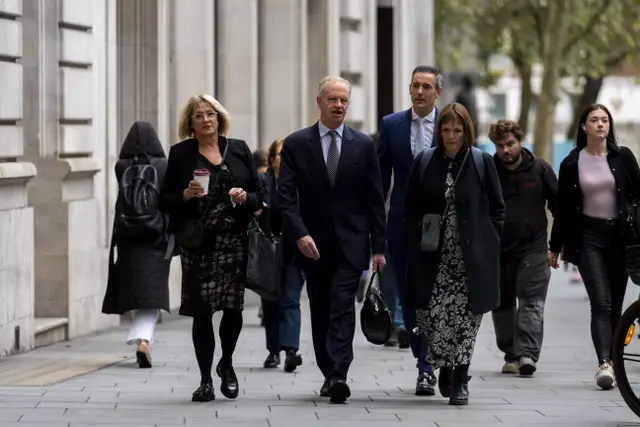
Vanessa Feltz 3pm - 6pm
9 October 2024, 16:24

Nick Read said he was not made aware of the ‘scale and enormity’ of the Horizon IT scandal before taking the top job.
Post Office chief executive Nick Read has said he was told not to “dig into the details of the past” by its leading lawyer when stepping into the role in 2019.
Giving evidence at the long-running Post Office Horizon IT Inquiry, he said he was not made aware of the “scale and enormity” of the Horizon IT scandal before taking the top job.
Mr Read joined long after the events which sparked the Horizon scandal, whereby more than 900 subpostmasters were prosecuted for stealing, based on incorrect information from an IT system known as Horizon.
But when he became chief executive in 2019, litigation between a group of 555 subpostmasters and the Post Office was just coming to a head, in which the company agreed to pay £58 million in compensation.
Mr Read said in a witness statement discussed at the inquiry: “Private prosecutions were presented to me as a historic issue that had ceased before 2015 and that I did not need to dig into the details of what had happened at Post Office in the past as this conduct had ended.”
He confirmed that it was the Post Office’s general counsel Ben Foat, who is temporarily away from the business, who had told him that.
Furthermore, Mr Read told the inquiry that he was briefed by senior members of the organisation prior to stepping into the role.
He said: “Amongst those briefings, I don’t think the scale or enormity of the scandal was brought to life for me because I don’t think there was a realisation or recognition at that stage on what was needed to be done or what was likely to happen.”
He added that there was a “degree of denial” over the impact of the Post Office losing the litigation brought by the subpostmasters, which he said in his witness statement had brought “shock and surprise” to the leadership team.

He wrote: “My recollection is that it was only in 2020 when there seemed to be a groundswell of opinion that Post Office had serious questions to answer about its previous mistreatment of postmasters that the senior leadership and board started to understand the potential scale of the crisis.”
Furthermore, Mr Read shed light on the opinion of the organisation after the convictions of hundreds of postmasters were quashed earlier this year.
“I don’t think I could say specifically that that is the case but there will be a view that not every quashed conviction will be innocent postmasters,” he told the inquiry.
“The majority of the organisation would agree that the action that has been taken is absolutely the right action and whether there are guilty postmasters that have been exonerated really is no longer an issue.”
The boss, who recently announced that he would be stepping down as chief executive next year, said he felt it was “astonishing” that the Post Office itself was involved in administering compensation for wrongly-prosecuted postmasters.
“My personal view and one that I have expressed consistently … was that it seems astonishing to me that an organisation that has been involved in the prosecution of postmasters should be involved in redress,” he said.

Meanwhile, further details emerged in Mr Read’s witness statement of the removal of former chairman Henry Staunton from his post by the then business secretary, Kemi Badenoch, at the start of the year.
Mr Read said there were a “wider set of issues relating to Henry’s behaviour and capacity as chair” which he believed contributed to the Government deciding that “change was needed”.
This included “unprofessional behaviour, such as falling asleep in board and shareholder meetings” due to him being “fatigued” and “not close enough to the issues on redress and the evidence emerging from the inquiry”.
“He would frequently report surprise at the amount of time he had to dedicate to the role, and the impression given was that he had signed up for a different job to the one he found himself in,” Mr Read wrote.
Mr Staunton previously claimed that Mr Read exhibited behaviour which constituted “bullying”, claims which Mr Read refuted.